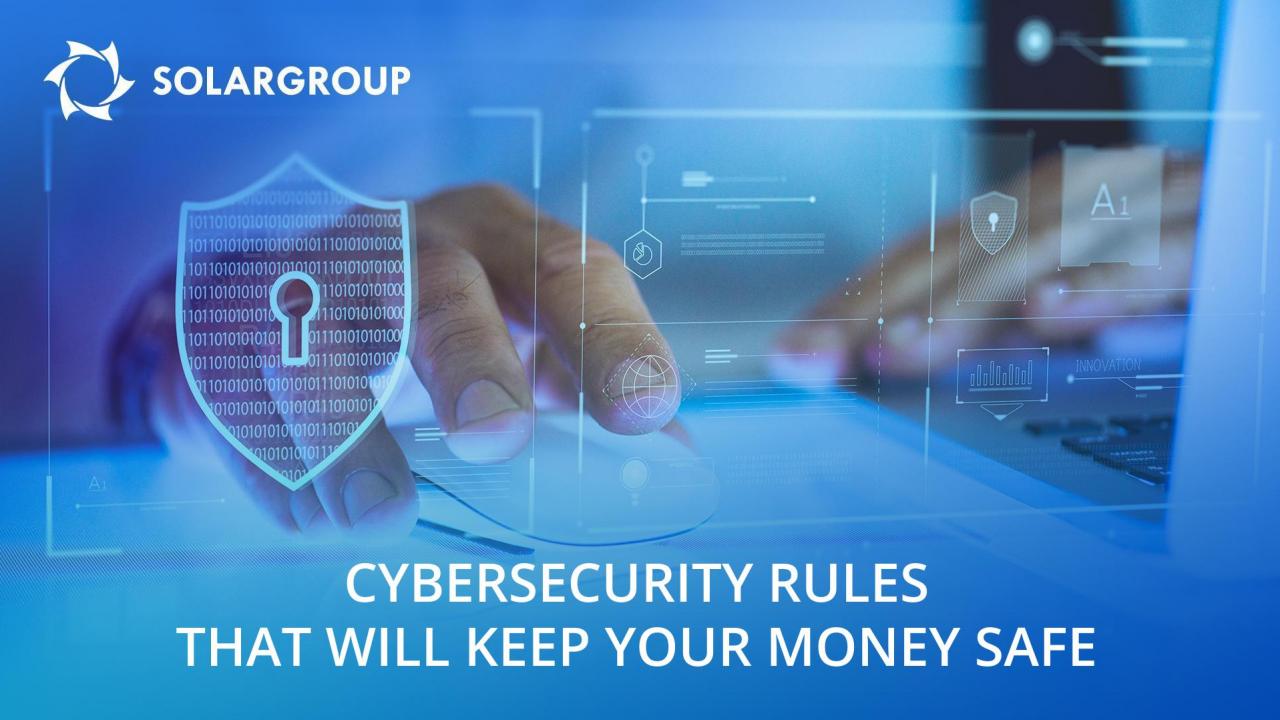
Cybersecurity rules that will keep your money safe
As the role of the Internet in our lives increases, so does the need to understand the principles of the Internet security. Therefore, today we will talk about the cybersecurity rules that every Internet user should follow.
1. Don't set primitive passwords. Despite the warnings, most of us still use such passwords as 123456, qwerty, the name of our child or pet, or our date of birth. All of the above-mentioned combinations are easy to guess within a matter of a few minutes or to find in your profile in one of the social media where we gladly post photos with pets signing their names. A simple password gives hackers access to your gadget, email and online banking, and can lead to losing personal data and even funds in bank accounts.
2. Never click on suspicious links. After receiving an email or SMS containing a link from an unknown recipient, first read the text carefully. If you have not participated in any "research" and do not expect a transfer of funds from an unknown sender, feel free to delete such emails and mark the sender as spam. The same applies to offers to earn extra money, find out super news by following the link or see your nude photos. After receiving a suspicious text message from your bank, dial the hotline number and check the latest updates in your profile, including whether you were sent any newsletters. If the answer is no, ban the sender. Clicking on the link may infect your smartphone or computer with malicious software that reads passwords and passes them to hackers for unauthorized access to your device.
3. Do not use public Wi-Fi for logging in to use online banking, pay for online purchases, or enter a social media account. This type of operations requires connecting to a secure network that is well protected from external attacks to prevent your personal data from being leaked. The most you can do with free Wi-Fi is find out how to get to a hotel in an unfamiliar place or read information about the sights you are interested in.
4. Don't pay with your main bank card online. To do this, mobile payment systems with a new level of security were invented: Android Pay and Apple Pay. By creating a one-time payment number, these systems do not request your bank card details, which means that its availability to scammers is zeroed out. If you have not yet mastered the new technologies and you pay for your online purchases in the old-fashioned way, get a separate Internet card for such payments and transfer a fixed amount to it. Even if hackers get access to it, you will keep your money intact on your payroll card.
5. Do not leave copies of your documents in non-financial institutions and do not send them by mail. Fitness centers, real estate agencies, travel agencies and restaurants quite often ask us to provide copies of documents to issue a membership or customer card or for any other random reason. Improper storage of customer personal data by such organizations leads to leakage, and then to sad consequences for its owners. If you don't want an unsecured loan to be issued in your name over the Internet one day, keep your documents with you at all times. The same applies to your e-mail: the chosen password gives hackers access to all documents ever sent from your email. Stay alert and try to change your passwords at least every three months.
6. Don't say no to two-factor authentication. This measure will protect your email, website account or online banking account from hacking: even if scammers manage to find the correct password to log in, they will not be able to guess the code that the system will send to your phone in an SMS message. Setting up the two-factor authentication is not difficult: the software usually offers this option during installation, or it can be enabled afterwards. For example, in the investor back office at reg.solargroup.pro, you can enable it in your profile by going to the “Settings” section.
We hope that you will master our useful tips and start applying them to protect your confidential data from leaks! It is also appropriate to remind you once again that the information that SOLARGROUP receives about the back office users is fully protected and is not subject to disclosure, which is stipulated in the “Non-Disclosure Agreement”. No one can get the personal and payment data of the project's investors, since the SSL Protocol is used to protect the information from unauthorized access.
Share your life hacks of ensuring personal cybersecurity!

